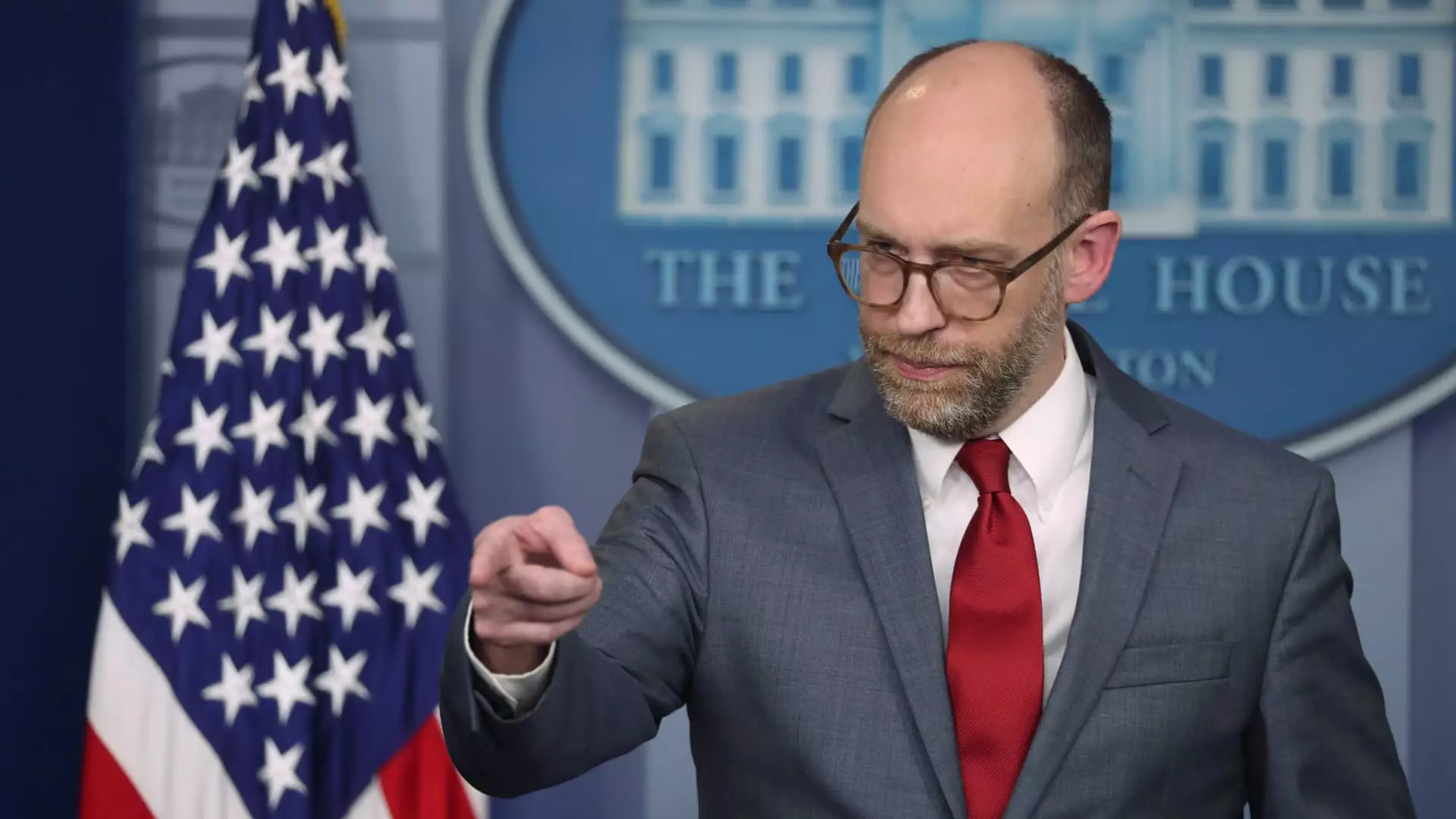The financial landscape of the United States is poised for significant change as the Consumer Financial Protection Bureau (CFPB) faces unprecedented challenges. Recent actions taken by the agency’s new acting director, Russell Vought, and the controversial involvement of operatives linked to tech billionaire Elon Musk, have raised alarms among the bureau’s employees and consumer advocates alike. The implications of these developments could drastically reshape not only the CFPB but also the broader consumer protection framework established after the 2008 financial crisis.
In a memo circulated to CFPB staff on Sunday, COO Adam Martinez announced that employees would be required to work remotely due to the closure of the Washington, D.C., headquarters through February 14. This directive follows an earlier message from Vought, which ordered a near-total suspension of the bureau’s regulatory activities, including its critical role in supervising financial institutions. This abrupt shift indicates a stark departure from the Bureau’s previously steady operations and raises questions about its future mandate and functionality.
The sudden pivot to remote work, combined with a halt on vital functions, reflects a growing uncertainty among the CFPB’s approximately 1,700 employees. Many employees fear for their jobs amidst conflicting signals about the agency’s stability and relevancy. The memo noted that staff was to brace themselves amid rumors of pending administrative leaves or layoffs reminiscent of prior political maneuvers impacting other federal agencies.
The entry of staff affiliated with Musk’s DOGE into the CFPB has compounded concerns about the agency’s direction and autonomy. Reports suggest these operatives have gained access to sensitive data, including employee performance reviews, thereby raising alarms about potential surveillance and politicization of the agency’s inner workings. Musk’s overt disdain for the CFPB, expressed through social media posts like “CFPB RIP,” paints a picture of an agency under existential threat.
The implications of DOGE’s infiltration are profound. They not only challenge the integrity of the CFPB but also pose serious questions about the motivations behind such political maneuvers. Musk’s vocal critiques of the CFPB could be interpreted as part of a broader agenda to undermine regulatory oversight at a time when consumer protection remains paramount.
Vought’s announcement regarding the cessation of new funding to the CFPB sets a precedent for potential resource limitations that could cripple the agency’s operations. By stating that the “spigot” for funding, previously contributing to what he called the CFPB’s “unaccountability,” is now shut off, Vought has essentially signaled a new era of financial austerity for the agency. This could precipitate widespread changes in how the CFPB interacts with consumers and financial institutions alike.
Such measures threaten the legacy of the CFPB, which was intricately designed to thwart predatory practices in the banking sector. Trade groups representing banks and other financial firms have long been critical of the Bureau, often arguing that its regulations stifle growth and innovation. However, with the agency’s ongoing efforts targeting credit card fees and medical debt, the stakes are high for consumers. The halt to important initiatives could cost consumers billions of dollars in savings while leaving them vulnerable to exploitative practices once again.
The potential downsizing and restructuring of the CFPB could have seismic implications for consumer protection measures across the nation. Originally born from the desire to safeguard American consumers against abuses in the financial system, the agency now faces threats that could dismantle hard-won protections. With only a fraction of its positions legally mandated, agency advocates worry that mass layoffs could eliminate crucial oversight meant to protect the public from financial exploitation.
As the CFPB navigates this precarious landscape, it must seek to realign its core mission while maintaining necessary consumer safeguards. The interplay of politics, funding, and operational stability will be crucial in determining how effectively the Bureau can operate amidst such turbulence. Consumer trust hangs in the balance as regulatory efficacy is called into question, posing significant risks to the freedoms that consumers previously took for granted.
In summation, as developments continue to unfold within the CFPB and the broader financial landscape, it remains to be seen how the agency will adapt to pressures that significantly threaten its long-held values and objectives. The coming weeks will be critical in shaping the future of consumer protection in the United States, and every stakeholder, from employees to consumers, will be watching keenly.

Leave a Reply